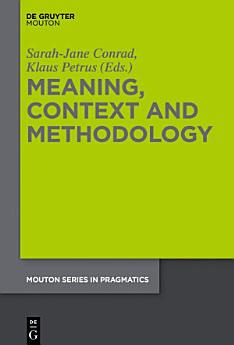Meaning, Context and Methodology
Sarah-Jane Conrad · Klaus Petrus
অক্টো ২০১৭ · Mouton Series in Pragmatics [MSP] কিতাপ 19 · Walter de Gruyter GmbH & Co KG
ইবুক
237
পৃষ্ঠা
reportমূল্যাংকন আৰু পৰ্যালোচনা সত্যাপন কৰা হোৱা নাই অধিক জানক
এই ইবুকখনৰ বিষয়ে
What methodological impact does Contextualism have on the philosophy of language? This collection sets out to provide some answers. The authors in this volume question three ultimately connected assumptions of the philosophy of language. The first assumption relates to the predominant status of referential semantics and its power to explain truth-conditional meaning. This assumption has come under attack by the context thesis and a number of papers pursue the question of whether this is justified. The second assumption gives priority to assertive sentences when considering language use. The context thesis changes our understanding of language use altogether; possible implications from this methodological shift are addressed in this volume. According to the third assumption, philosophical analysis amounts to nothing more than conceptual analysis. The context thesis risks undermining this project. Whether conceptual analysis can still be defended as a methodological tool is discussed in this volume.
লিখকৰ বিষয়ে
Sarah-Jane Conrad, Klaus Petrus, Universität Bern, Switzerland
এই ইবুকখনক মূল্যাংকন কৰক
আমাক আপোনাৰ মতামত জনাওক।
পঢ়াৰ নির্দেশাৱলী
স্মাৰ্টফ’ন আৰু টেবলেট
Android আৰু iPad/iPhoneৰ বাবে Google Play Books এপটো ইনষ্টল কৰক। ই স্বয়ংক্রিয়ভাৱে আপোনাৰ একাউণ্টৰ সৈতে ছিংক হয় আৰু আপুনি য'তে নাথাকক ত'তেই কোনো অডিঅ'বুক অনলাইন বা অফলাইনত শুনিবলৈ সুবিধা দিয়ে।
লেপটপ আৰু কম্পিউটাৰ
আপুনি কম্পিউটাৰৰ ৱেব ব্রাউজাৰ ব্যৱহাৰ কৰি Google Playত কিনা অডিঅ'বুকসমূহ শুনিব পাৰে।
ই-ৰীডাৰ আৰু অন্য ডিভাইচ
Kobo eReadersৰ দৰে ই-চিয়াঁহীৰ ডিভাইচসমূহত পঢ়িবলৈ, আপুনি এটা ফাইল ডাউনল’ড কৰি সেইটো আপোনাৰ ডিভাইচলৈ স্থানান্তৰণ কৰিব লাগিব। সমৰ্থিত ই-ৰিডাৰলৈ ফাইলটো কেনেকৈ স্থানান্তৰ কৰিব জানিবলৈ সহায় কেন্দ্ৰত থকা সবিশেষ নিৰ্দেশাৱলী চাওক।








